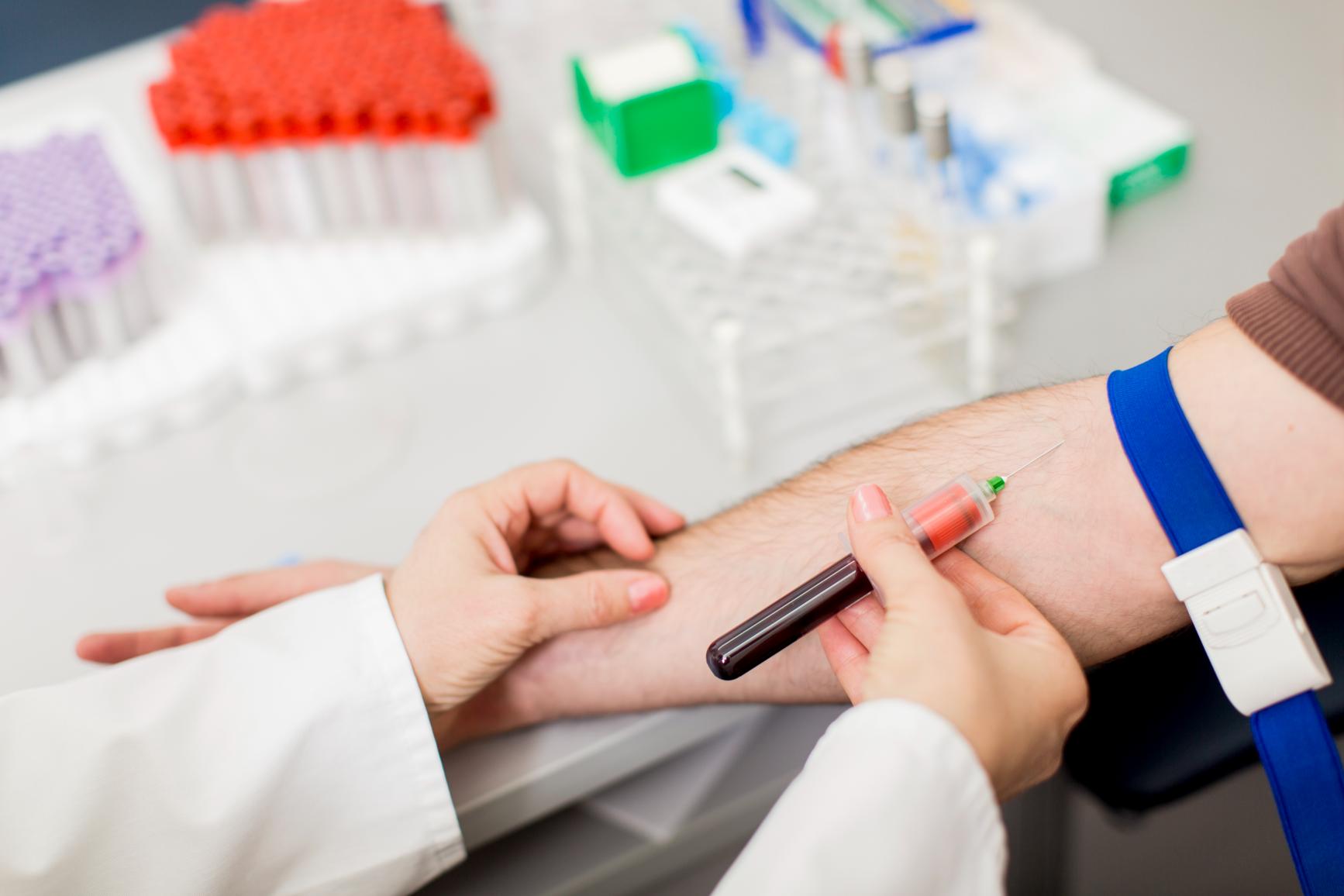Subtotal $0.00
The Importance of a General Health Panel Blood Test for Long-Term Health
Monitoring your health is critical to leading a long, healthy life. One of the simplest and most effective ways to assess your overall health is through a General health panel blood test . This routine test not only provides valuable insight into your current health status but also helps in the early detection of potential health problems. Understanding why regular blood tests for health monitoring are important can guide you toward better preventive care and disease management.
What Is a General Health Panel?
A general health panel blood test is a comprehensive set of tests that provide a snapshot of your overall health. These tests typically include:
- Complete Blood Count (CBC): Evaluate your red and white blood cells, hemoglobin, and platelets to detect conditions like anemia, infections, and clotting disorders.
- Comprehensive Metabolic Panel (CMP): Assesses liver and kidney function, electrolyte balance, and blood glucose levels.
- Lipid Panel: Measures cholesterol and triglycerides, offering insight into your risk for heart disease.
Together, these components of the general health panel test are essential for tracking key health metrics over time, especially when used regularly. They help reveal conditions such as diabetes, liver disease, kidney disease, and high cholesterol, even if no symptoms are present.
How Often Should You Get a General Health Panel Blood Test?
The frequency with which you should undergo a general health panel depends on several factors, including age, medical history, and lifestyle choices. For most healthy adults, it’s recommended to have a blood test at least once a year as part of a routine physical exam. However, individuals with certain risk factors or chronic conditions may need more frequent testing.
Healthcare providers often advise individuals with conditions such as high blood pressure, diabetes, or a family history of cardiovascular disease to get tested more regularly. Monitoring your health through routine blood tests can help catch changes early, preventing more severe health issues down the road.
Key Benefits of Regular General Health Panel Blood Tests
The benefits of regular blood tests for health monitoring go far beyond merely collecting data. Here’s why these tests are so important:
Early Disease Detection
One of the primary reasons to undergo a general health panel is to catch diseases in their early stages. Many chronic diseases, such as heart disease, diabetes, and kidney disease, can be identified through abnormal blood test results before symptoms even appear. It allows for early intervention and can significantly improve treatment outcomes.
Tracking Health Trends Over Time
By regularly reviewing your blood test results, healthcare providers can track changes in your health metrics. For example, a gradual increase in blood sugar levels or cholesterol can be addressed before it leads to more serious conditions like diabetes or heart disease.
Tailored Healthcare Recommendations
A general health panel blood test gives your doctor a clearer picture of your overall health, allowing them to offer more personalized recommendations. Whether it’s adjusting your diet, suggesting lifestyle changes, or prescribing medications, blood tests are crucial for customized healthcare plans.
What Conditions Can a General Health Panel Detect?
A general health panel can detect a wide range of conditions, from minor deficiencies to serious diseases. Some of the most common issues include:
- Anemia: Low hemoglobin levels may indicate a lack of iron or other essential nutrients.
- Infections: Elevated white blood cell counts can signal bacterial or viral infections.
- Diabetes: High blood sugar levels in a metabolic panel indicate potential diabetes.
- Liver or Kidney Disease: Abnormal liver enzymes or kidney function can reveal underlying organ issues.
- High Cholesterol: Lipid panel results provide information about cholesterol levels, which are closely linked to cardiovascular risk.
By detecting these conditions early through routine health screening blood tests, you can begin treatment before serious symptoms arise.
Who Should Consider Getting Regular General Health Panel Blood Tests?
Certain demographics should consider undergoing a general health panel more frequently. If you fall into any of the following categories, regular blood tests are crucial for managing your health. For more detailed information, check out this Early Detection of Chronic Diseases via General Health Panel Blood Test to better understand the tests involved and their importance.
- Older Adults: As we age, the risk of chronic conditions like heart disease and diabetes increases.
- People with Chronic Conditions: Those managing conditions like hypertension, diabetes, or high cholesterol benefit from routine blood monitoring.
- Individuals with a Family History of Disease: If you have a family history of conditions like heart disease or diabetes, regular testing can help identify early signs of these conditions.
- High-Risk Individuals: Smokers, those who are overweight, or people with unhealthy diets are at greater risk for various health issues.

The Process of Getting a General Health Panel Blood Test
Undergoing a general health panel blood test is a simple process. Here’s what you can typically expect:
- Pre-test Preparations: Depending on the type of tests being performed, you may be asked to fast for 8-12 hours, especially if a lipid panel or glucose test is part of the screening.
- Blood Draw: A healthcare professional will collect a small sample of blood, usually from a vein in your arm.
- Processing and Results: After your blood is collected, it will be sent to a laboratory for analysis. Results are usually available within a few days, and your healthcare provider will interpret them.
Interpreting General Health Panel Results
Interpreting the results of a general health panel can sometimes be confusing, but understanding key markers can help you make sense of your health status. Here are some common metrics and what they indicate:
- White Blood Cell Count (WBC): High levels may indicate infection, while low levels could suggest a compromised immune system.
- Hemoglobin and Hematocrit: Low levels can point to anemia, while high levels may indicate dehydration or lung disease.
- Glucose: Elevated levels can signal diabetes or prediabetes.
- Cholesterol: A lipid panel will break down your levels of “good” (HDL) and “bad” (LDL) cholesterol, which are crucial for assessing heart disease risk.
Common Misconceptions About General Health Panel Blood Tests
Many individuals avoid getting regular blood tests due to misconceptions. Let’s debunk a few common myths:
- Myth: You Only Need Blood Tests When You’re Sick: This couldn’t be further from the truth. Regular health check blood tests are crucial for preventing disease.
- Myth: All Abnormal Results Are Serious: Not all abnormal results mean there’s something critically wrong. Minor fluctuations can occur due to diet, stress, or temporary health conditions.
How a General Health Panel Fits into Preventive Health Care
Preventive healthcare focuses on maintaining good health and preventing disease before it starts. A general health panel blood test is a core part of this approach. Identifying potential health problems early allows for timely intervention, helping you avoid more severe health issues later.
Blood tests provide crucial data on vital aspects of your health, guiding your doctor in making recommendations for lifestyle changes, treatments, or additional tests to help maintain optimal health.
Differences Between a General Health Panel and Specialized Blood Tests
While a general health panel provides a broad overview of your health, there are times when more specific tests are required. For example:
- Hormone panels for thyroid or reproductive health
- Cancer screenings, such as PSA tests or tumor marker analysis
- Cardiovascular risk panels, which may include additional lipid breakdowns or inflammatory markers
These specialized tests are often recommended when general panels suggest a deeper issue or when specific symptoms warrant further investigation.
How to Choose a Reliable Lab for Your General Health Panel
Choosing the right lab for your health panel blood test is essential for accurate results. Look for labs that are:
- Accredited: Ensure the lab is certified by relevant health authorities.
- Convenient: Choose a location that’s easy to access, and check if they offer services like online result access.
- Well-reviewed: Read customer reviews and check the lab’s reputation for accuracy and service.
Conclusion
A general health panel blood test is an essential tool for monitoring your health. By providing valuable insights into key health indicators, these tests help detect potential issues early, track changes over time, and guide personalized healthcare recommendations. Importance of Annual General Health Panel Blood Tests lies in their ability to help you maintain your current health or catch issues before they become serious. These tests are an indispensable part of preventive healthcare, offering peace of mind and empowering individuals to take charge of their well-being.
FAQ's
A general health panel tests for overall health by evaluating blood cells (CBC), organ function (CMP), and cholesterol levels (lipid panel). It helps detect issues like anemia, infections, diabetes, and heart disease.
It checks red and white blood cells, glucose, cholesterol, liver and kidney function, and electrolytes, providing a snapshot of your health and detecting conditions like infections, anemia, and diabetes.
Blood tests detect diseases early, track health changes over time, and guide personalized healthcare recommendations, making them crucial for preventive care and disease management.
A full panel checks blood cell counts (CBC), organ function (liver and kidneys), electrolytes, blood sugar, and cholesterol, offering a comprehensive view of your overall health.
The purpose is to assess your overall health, detect diseases early, monitor chronic conditions, and provide key information for preventive care.
A basic blood panel tests blood cell counts (CBC), glucose, electrolytes, and kidney function, providing essential health information about your body’s metabolism and organ function.




Comments are closed